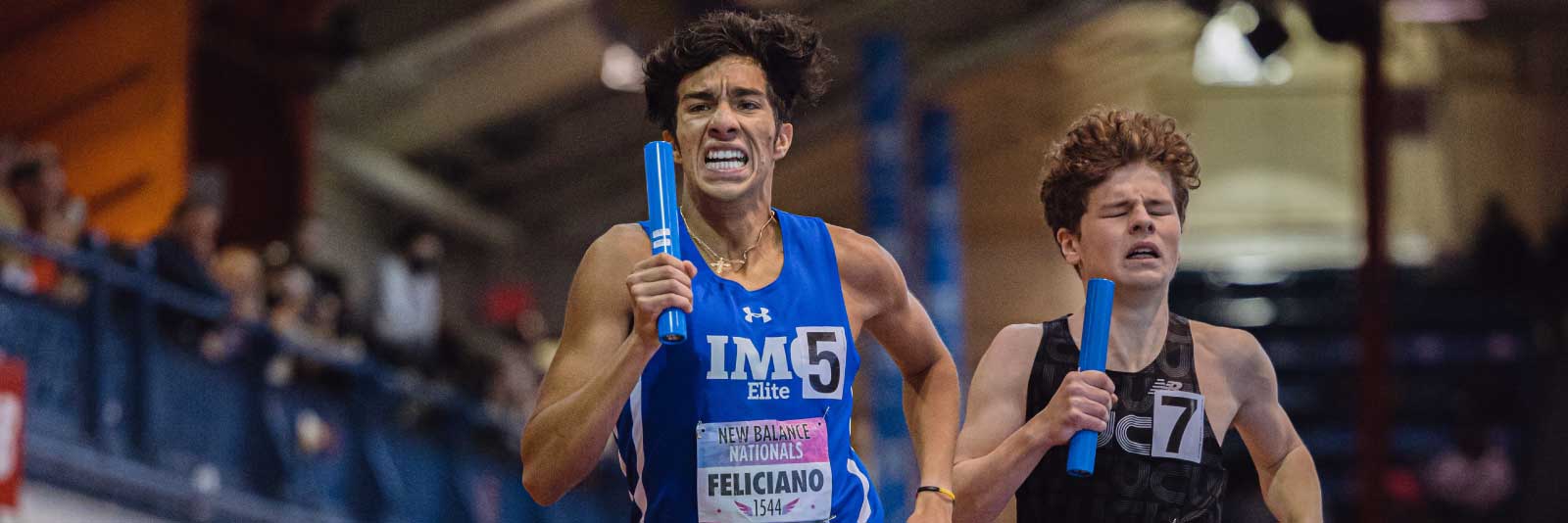Junior Colleges with Men’s Track and Field Programs

While student-athletes may be familiar with competing at the NCAA or NAIA levels, they often overlook junior colleges. There are many misconceptions about what junior colleges can offer student-athletes, and that’s why they get overlooked or ignored in favor of a four-year institution. However, what many student-athletes don’t realize is that junior colleges—often referred to as JUCO—are considered “feeder” schools for D1 schools. D1 college coaches often look to the best track and field JUCO colleges to fill empty roster spots created by transfers, injuries or a lack of academic eligibility on their current team. For many student-athletes, JUCO is a great way to improve their times or other key measurables while crossing off some core classes before moving on to a D1, D2, D3 or NAIA program.
What else do student-athletes get wrong about junior colleges with track and field? Many student-athletes don’t realize that competing at the JUCO level shows college coaches that they can handle the challenges of balancing college coursework along with their athletic schedules, which makes them highly sought-after recruits. College coaches want to recruit student-athletes who they know can stay academically eligible while competing. Also, since many junior college recruits have at least one, if not two years of experience competing at the college level, college coaches know they are a safe bet and can “jump in” to a last-minute roster opening when compared to their freshmen peers, who may need some additional guidance or training.
Depending on the junior college, it’s not unheard of for JUCO track and field schools to offer scholarships. In fact, track and field athletes at the junior college level often have more scholarship options than they think. The National Junior College Athletic Association, or the NJCAA, offers full and partial scholarships at the D1 level. Additionally, junior colleges are considerably more affordable than a four-year private or even public college, so when factoring in academic, athletic and need-based aid, it’s not unheard of for some top athletes to receive full-rides to some of the best track and field JUCO colleges in the USA.
How many men’s JUCO track and field schools are there?
There are more than 100 junior colleges with track and field programs in the U.S. Of those, 64 junior colleges offer indoor track and field programs, while 105 offer outdoor track and field programs. Student-athletes who compete at the junior college level operate under the governing association of community, state and junior college athletics known as the National Junior College Athletic Association, or the NJCAA. It’s important to note that while the NJCAA is divided into three division levels (like the NCAA and NAIA D1, D2 and D3 levels), track and field programs operate at the D1 and D3 levels only. Additionally, while there are 20 scholarships available per program, they are only available at the NJCAA D1 level. Sixty-four D1 programs offer indoor track and field programs, while 67 D1 programs offer either outdoor track and field or both indoor and outdoor programs.
Check out a complete list of junior colleges with track and field programs here.
Best track and field JUCO colleges in USA
Several organizations offer JUCO track and field rankings throughout both indoor and outdoor seasons, including the NJCAA, the U.S. Track & Field and Cross Country Coaches Association and the Track & Field Results Reporting System. Here are the top programs:
- Iowa Central
- Barton
- Cloud County
- Coffeyville
- South Plains
- Central Arizona
- Trinidad State
- Colby
- Monroe College
- Hinds
Check out the best track and field JUCO colleges in the USA.
List of NJCAA men’s track and field colleges that compete at Division 1 and 2
While the NJCAA is divided into three division levels like the NCAA and NAIA D1, D2 and D3 levels, track and field programs only operate (and give scholarships!) at the D1 and D3 levels. D1 and D3 junior colleges with track and field compete during the winter and spring. Indoor track programs operate in the winter, while outdoor track programs start running in the spring.
Check out the best track and field JUCO colleges in the USA that compete at the indoor level.
Check out the best track and field JUCO colleges in the USA that compete at the outdoor D1 level.
Check out the best track and field JUCO colleges in the USA that compete at the outdoor D3 level.